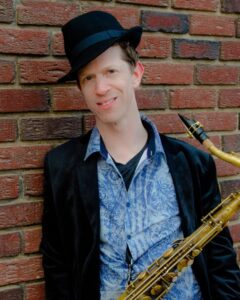Embodied Music Composition: Uncovering Layers of Meaning Through a Collaborative Process
Presented
by
MATTHEW STECKLER
WEBINAR OVERVIEW
A research presentation from the
2021 JENX Online Conference
This Research Examines the Lived Experience of Improvisers Working Within Various Social Play Spaces in a Process of Embodied Composition. Co-Investigators (C.I.s) Were Part of the Process of Creating the Lead Investigator’s (L.I.) New Work and, in So Doing, Were Exposed to New Approaches in Music Making.
ABOUT MATTHEW STECKLER

Matthew Steckler performs and composes in several musical settings internationally. Primarily a saxophonist/woodwind specialist, he also performs on vocals, keyboards, percussion, and electronic media, bringing a dynamic, holistic approach to the live musical experience. As an artist, Matthew has appeared at prominent festivals and concert series, and has received commissions from Chamber Music America, Meet the Composer, American Music Center, and American Composers Forum. His recordings on Ropeadope, Cuneiform, and Innova labels have made Best CD lists in Downbeat and Jazz Times. Matthew has written for concert music, theatre, film, and game audio settings, and continues his own foundational work in electroacoustics and multimedia that began with his 2013 research-based, extended jazz work Eco Beat Heresy. He most recently taught at Brandon University School of Music. Matthew holds a Ph.D. in Composition (NYU) and M.M. in Jazz Performance (New England Conservatory), and a B.A. in Music (Wesleyan University). The research from this presentation – heard on Matthew’s latest album Long Time Ago Rumble (Ropeadope) – examines the lived experience of improvisers working within various social play spaces in a process of embodied composition. Co-Investigators (C.I.s) were part of the process of creating a new work and, in so doing, were exposed to new approaches in music-making. The new work incorporated real embodied sound and gesture early in the process, asked more of the performers in terms of interpreting a given conceptual framework, and allowed the subsequent editing stages of the piece to draw upon qualitative data that C.I.s helped produce. An open-response format interview was conducted which allowed investigators to reflect – reporting an increased sense of agency, reciprocity, and collaboration as a result of this process.
Hey, !
Would you like a Certificate of Completion for this session?
If yes, take the one-question quiz below.
If no, click Next Topic to proceed to the next session.
